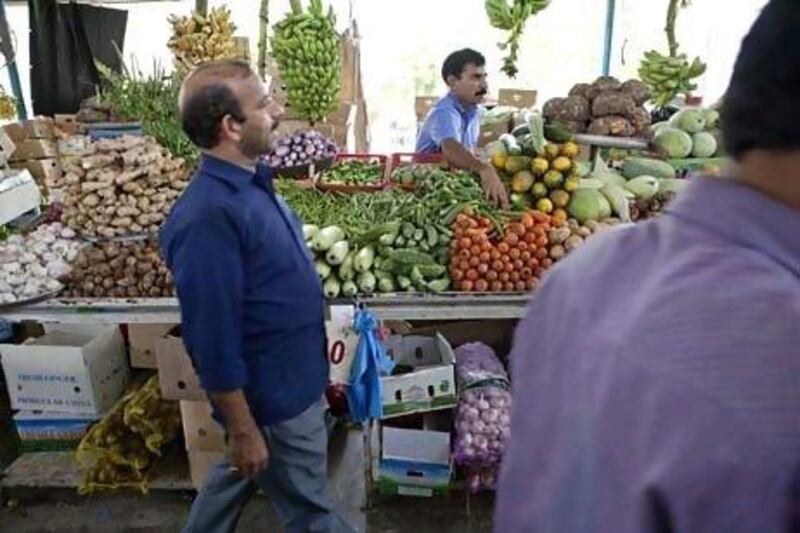Falling accommodation costs may mean that living in the UAE is cheaper than in many other places for now, but inflationary pressures are forecast to build.
The cost of imported goods is likely to rise because of expected weakness of the US dollar, according to analysis from the Economist Intelligence Unit (EIU). The dirham's link to the dollar through a currency peg means fluctuations in the greenback can affect prices in the Emirates.
"We expect the US dollar to appreciate at a much lower rate than other currencies," said Ayesha Sabavala, a UAE analyst at EIU. "The cost of living in the UAE will increase substantially in 2011-15 as the purchasing power of the dirham declines." Inflation will average 2.2 per cent between this year and 2015, the EIU estimates. Lingering fragility in the housing market would be the main factor restraining higher inflation rises, it said. Rents and other housing costs helped to fuel double-digit increases in the consumer price index (CPI) in 2007 and 2008.
The US dollar has fallen by about 12 per cent over the past year as concerns persist about the recovery of the world's biggest economy from the downturn. It has rallied against the euro recently as Europe's escalating sovereign debt crisis steers investment towards the world's reserve currency. In the longer term, however, analysts expect the dollar's status to gradually erode as investors look for higher returns elsewhere. A lower dollar can push up the cost of foreign products and services shipped into the UAE.
Consumer prices rose to a three-month peak of 1.4 per cent on an annual basis in May, the latest data from the National Bureau of Statistics show. Higher costs of imported food have been a main driver of inflation so far this year, with food prices rising 1.3 per cent in May compared with the previous month.
Rising prices of grains, sugar and other basic items mean inflation will average 2.5 per cent this year, the EIU says. Global food prices have reached a near-record high this year as bad harvests and food export controls put pressure on supplies.
In response, the Ministry of Economy has agreed with retailers to fix the prices of 400 commodities at 70 outlets in various emirates until the end of the year. Nonetheless, global food pricing pressures are likely to remain elevated, with the charity Oxfam warning that the average cost of key items could rise by up to 180 per cent by 2030.
Weakness in the UAE's property market is expected to help keep overall consumer price rises in check in the medium term. Housing prices, the largest factor in the CPI, with a 39 per cent share, fell 0.1 per cent on a monthly basis in May, the sixth consecutive decline.
"We see property prices declining further in 2011 and 2012," Ms Sabavala said.
"There will be no upswing at the moment due to additional supply."
The onset of the global financial crisis helped to wind down inflationary pressures in the UAE as a departure of investors hastened falls in the property market.
Inflation eased to 0.9 per cent last year, its lowest annual level since 1990.





